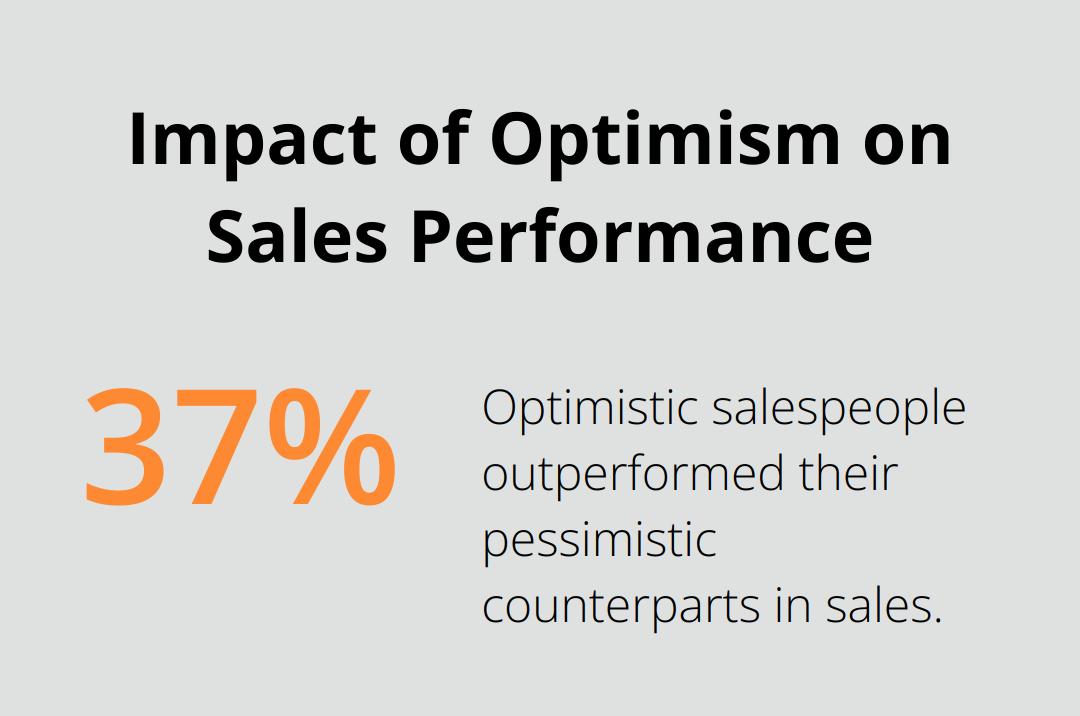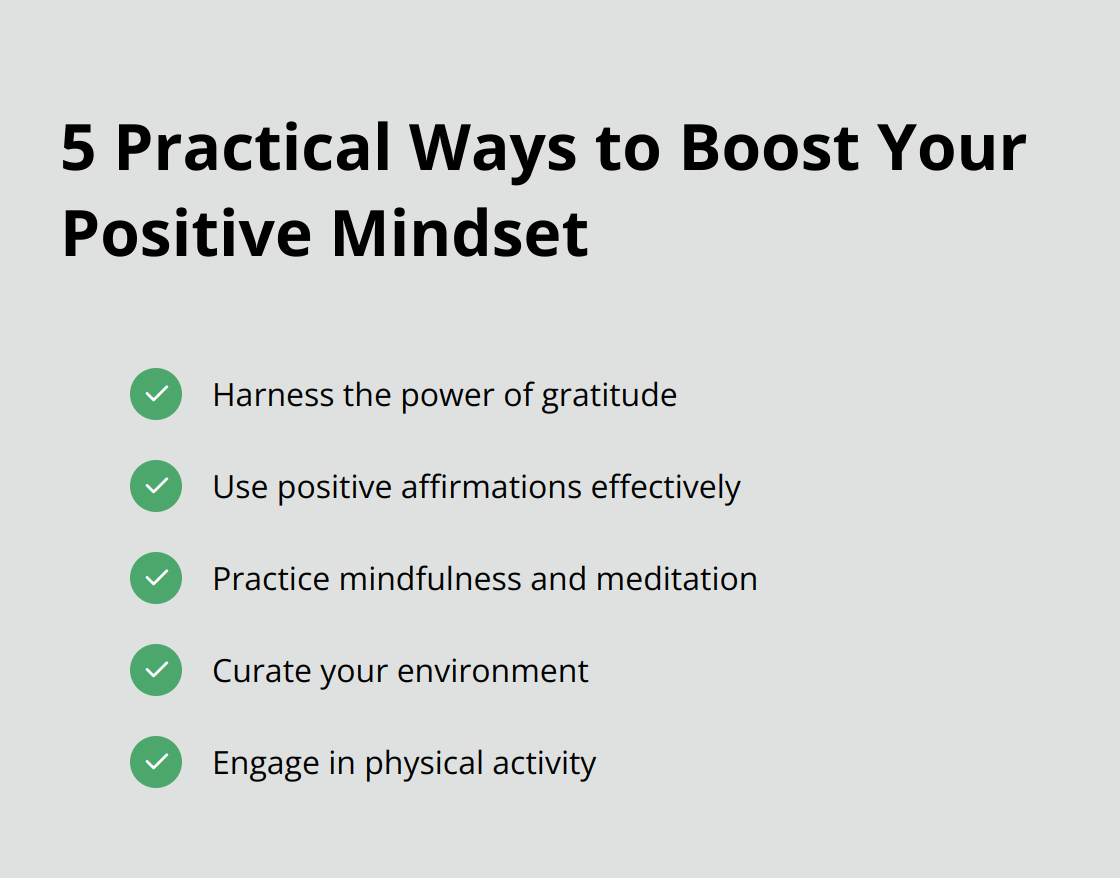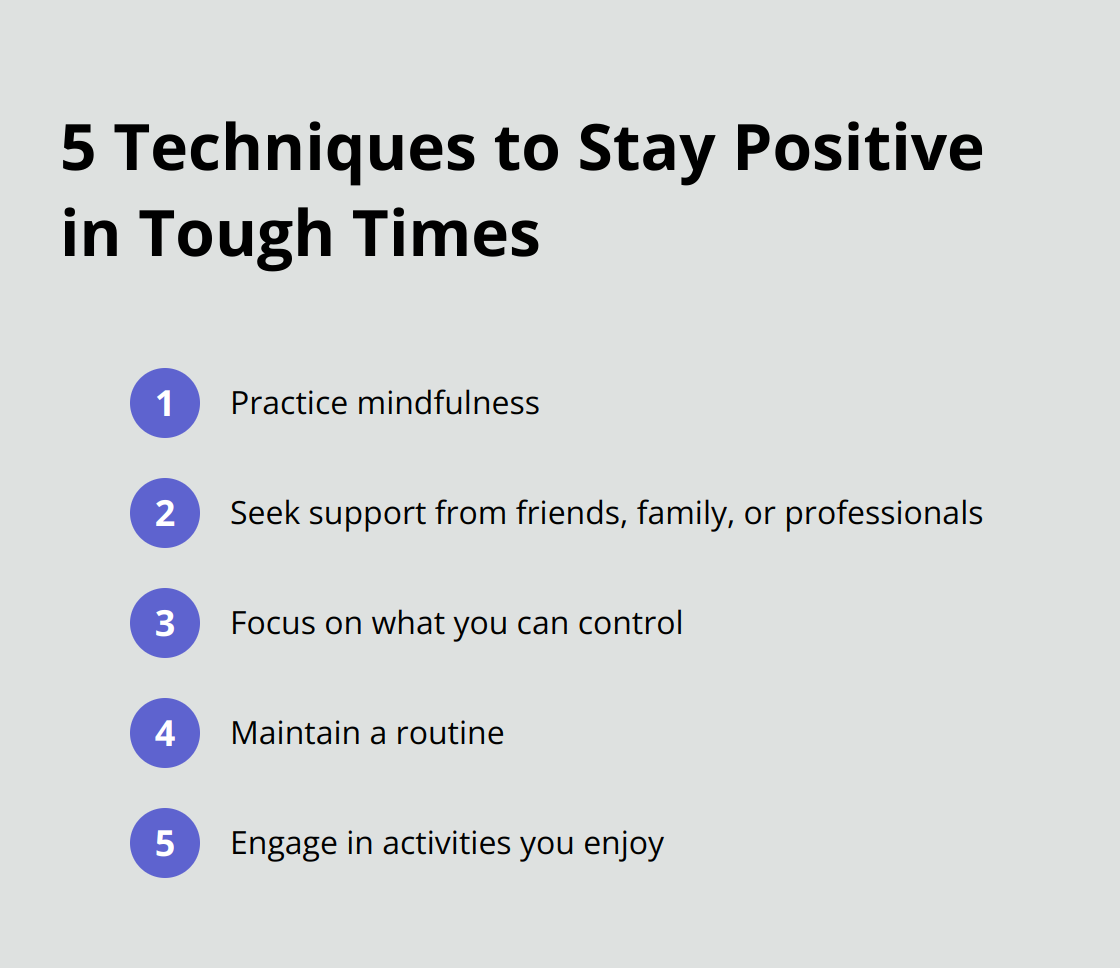At Global Positive News Network, we believe in the transformative power of a positive mind and positive vibes. The impact of optimistic thinking extends far beyond personal well-being, influencing our relationships, success, and overall quality of life.
In this blog post, we’ll explore practical techniques to cultivate a positive mindset and radiate good energy. We’ll also delve into strategies for overcoming negativity and maintaining an optimistic outlook, even in challenging times.
The Science of Optimism
Positive thinking isn’t just a feel-good concept; it’s backed by scientific research. Studies show that optimism has tangible effects on our mental and physical well-being. Optimism is a mental attitude that heavily influences physical and mental health, as well as coping with everyday social and working life.
The Brain-Body Connection
Our thoughts have a direct impact on our physical health. When we think positively, our bodies release endorphins, serotonin, and dopamine – neurotransmitters associated with happiness and well-being. These chemicals not only improve our mood but also boost our immune system, reduce stress levels, and even lower the risk of cardiovascular diseases.
Positivity in Relationships
The power of positive thinking extends beyond personal benefits. It creates a ripple effect in our relationships and social interactions. People who radiate positivity tend to attract like-minded individuals, fostering supportive and uplifting connections. This network of positive relationships can lead to increased opportunities, both personally and professionally.
Success and Positive Thinking
Optimism plays a significant role in achieving success. A study by the University of Pennsylvania found that salespeople with an optimistic outlook sold 37% more than their pessimistic counterparts. This demonstrates how a positive mindset can directly influence performance and outcomes in various aspects of life.

Practical Steps to Incorporate Positivity
Incorporating positive thinking into your daily life doesn’t have to be complicated. Try to consciously replace negative thoughts with positive ones. Practice gratitude by noting three things you’re thankful for each day. Surround yourself with uplifting content and people who inspire you. These small steps can lead to significant changes in your outlook and, consequently, your life experiences.
The science of optimism provides a solid foundation for understanding the power of positive thinking. As we explore further, we’ll discover practical techniques to cultivate this positive mindset and learn how to radiate good vibes in our daily lives.
Practical Ways to Boost Your Positive Mindset
Harness the Power of Gratitude
Many studies suggest a link between gratitude and life satisfaction, including experimental tests of gratitude interventions. This simple practice can significantly shift your focus towards positivity.
To turn this into a habit, keep a gratitude journal by your bedside. Each morning, write down three things you appreciate. These can range from simple pleasures (like a warm cup of coffee) to profound experiences (such as a supportive friendship). This practice trains your brain to seek out the good in your life.
Use Positive Affirmations Effectively
Positive affirmations are short, powerful statements that can help rewire your thought patterns. To use them effectively, select affirmations that resonate with you and align with your goals. For example, if you work on self-confidence, you might say, “I am capable and worthy of success.”
Repeat your chosen affirmations daily, preferably in front of a mirror. The key lies in consistency and belief. Even if you don’t fully believe the affirmations at first, regular repetition can help internalize these positive messages over time.
Practice Mindfulness and Meditation
Mindfulness and meditation are powerful tools for fostering positivity. Research suggests that meditation can change your brain, potentially leading to positive changes.
Try to dedicate five minutes to mindfulness each day. Find a quiet spot, close your eyes, and focus on your breath. When thoughts arise, acknowledge them without judgment and gently return your focus to your breathing. This practice helps you stay present and reduces negative rumination.
Curate Your Environment
Your environment plays a crucial role in shaping your mindset. Surround yourself with uplifting content and positive people. Follow inspiring accounts on social media, read books that motivate you, and listen to podcasts that spark joy.
You can create an environment that nurtures optimism by consciously choosing to expose yourself to positive content. (This might include following news sources that focus on uplifting stories and inspiring achievements.)

Engage in Physical Activity
Physical activity is a powerful mood booster. Regular exercise releases endorphins (often called “feel-good” hormones) that can improve your overall sense of well-being. You don’t need to run a marathon; even a brisk 30-minute walk can make a significant difference.
(Try to incorporate physical activity into your daily routine. This could be as simple as taking the stairs instead of the elevator or doing a quick yoga session during your lunch break.)
As you implement these practices to cultivate a positive mindset, you’ll likely find yourself naturally radiating more positivity and good vibes. But what happens when negativity creeps in? In the next section, we’ll explore strategies for overcoming negativity and maintaining an optimistic outlook even in challenging times.
Navigating Life’s Storms with Optimism
Recognizing and Reframing Negative Thoughts
The first step to overcome negativity is to identify negative thought patterns. Pay attention to your inner dialogue. Do you constantly criticize yourself? Do you often expect the worst outcomes? Once you identify these patterns, you can start to reframe them.
Instead of thinking, “I’m not good enough for this job,” try to reframe it as, “This job challenges me, but it offers an opportunity to grow and learn new skills.” This shift in perspective can significantly impact your overall outlook.
Building Resilience Through Adversity
Resilience doesn’t mean avoiding difficulties; it means bouncing back stronger. The American Psychological Association defines resilience as the process of adapting well in the face of adversity, trauma, tragedy, threats, or significant sources of stress.
One way to build resilience is through what psychologists call “post-traumatic growth.” This concept suggests that people can experience “positive psychological changes as a result of the struggle with trauma or highly challenging situations.”
Staying Positive in Tough Times
When faced with difficult situations, it’s important to maintain perspective. Challenges are temporary and often provide valuable lessons. Here are some practical techniques to stay positive during tough times:

- Practice mindfulness: Focus on the present moment rather than worry about the future or dwell on the past.
- Seek support: Reach out to friends, family, or a professional counselor. Sharing your feelings can provide relief and new perspectives.
- Focus on what you can control: Instead of stressing about things beyond your influence, concentrate on actions you can take to improve your situation.
- Maintain a routine: Structure can provide a sense of normalcy and control during chaotic times.
- Engage in activities you enjoy: Hobbies and pastimes can serve as a healthy distraction and mood booster.
The Power of Self-Compassion
Self-compassion plays a vital role in maintaining positivity. Dr. Kristin Neff, a pioneer in self-compassion research, defines it as treating yourself with the same kindness and understanding that you would offer a good friend.
Studies show that individuals who practice self-compassion experience greater emotional resilience, more accurate self-concepts, and more caring relationship behavior. To cultivate self-compassion, try to speak to yourself as you would to a loved one facing a similar situation. Acknowledge your feelings without judgment and remind yourself that imperfection is part of the shared human experience.
Self-compassion practices can foster self-love, resilience, and positivity.
(These strategies can help you navigate life’s challenges while maintaining a positive outlook. Positivity doesn’t mean denying negative emotions or experiences. It means approaching them with resilience, self-compassion, and a growth mindset.)
Final Thoughts
A positive mind radiates positive vibes, transforming your life and those around you. You can rewire your brain for optimism through daily gratitude, affirmations, and mindfulness practices. These powerful tools equip you with mental strength to face adversity and navigate challenges with grace.
The benefits of a positive mindset extend to improved health, stronger relationships, and increased success. Small actions lead to significant changes over time. (You can start your journey today by expressing gratitude, meditating briefly, or sharing an uplifting story with a friend.)
We at Global Positive News Network believe in the power of positive news to inspire and uplift. Our platform shares stories that foster hope and optimism. You can cultivate a positive mind and radiate good vibes that benefit you and inspire others by incorporating these practices and staying connected with uplifting content.


